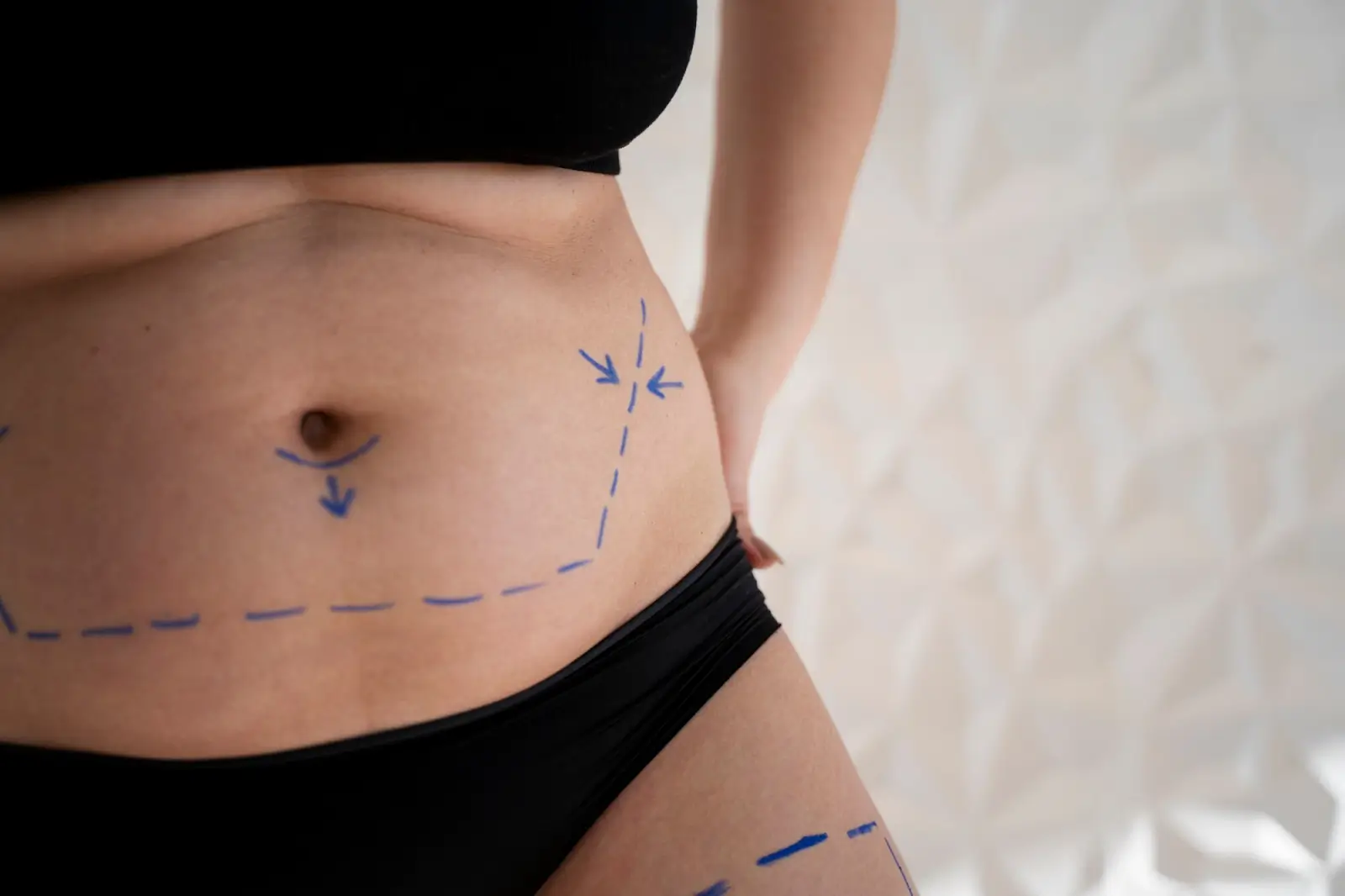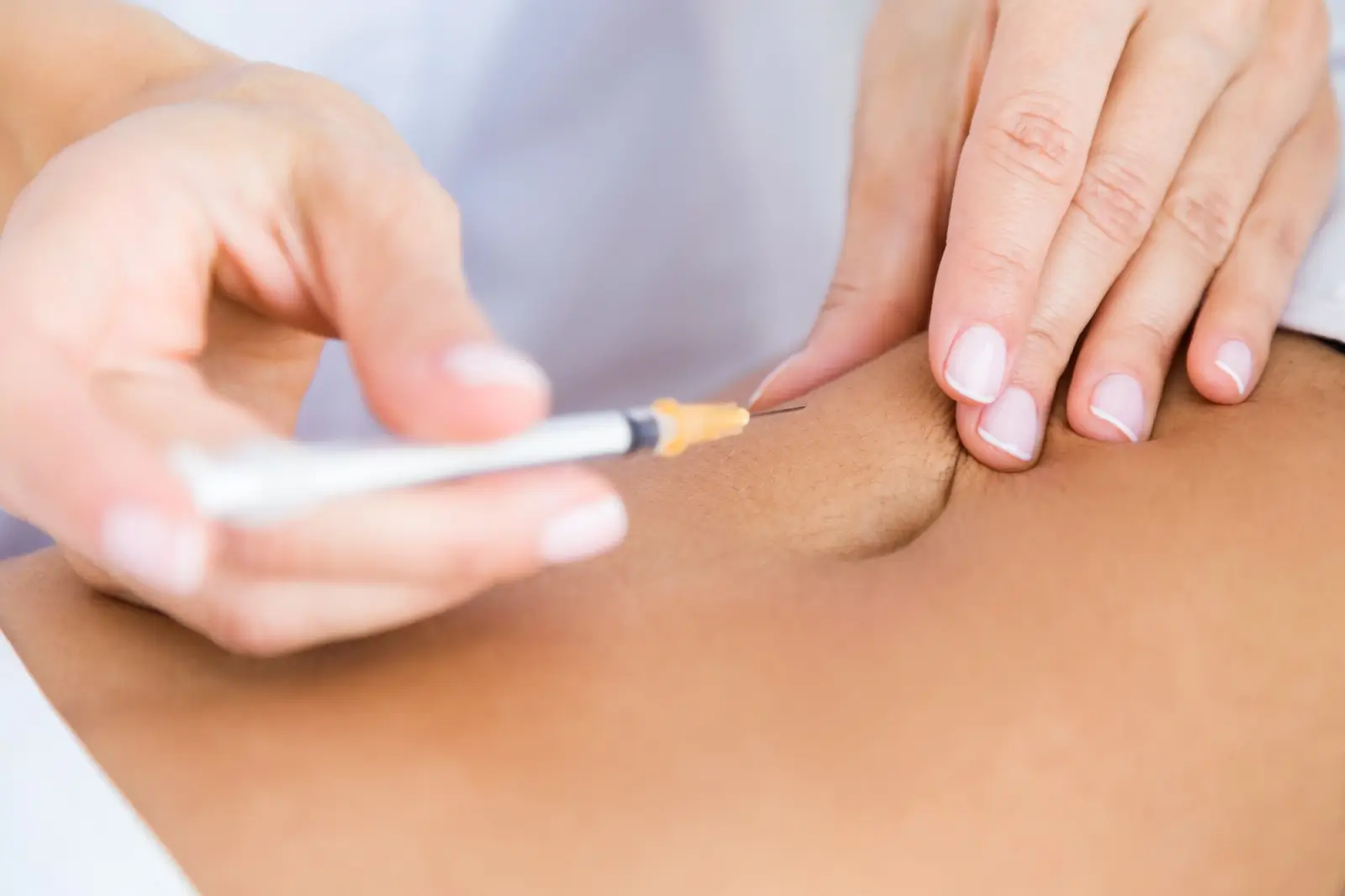Only for Licensed Professionals
Only for Licensed Professionals
.webp)
Aqualyx or Lemon Bottle – Which is the Better Fat Dissolving Product?
David Fuller
Last Updated On: April 30, 2025
A systematic review has confirmed that injection lipolysis—using compounds like phosphatidylcholine and deoxycholate—can effectively reduce localized fat deposits, particularly in areas such as the face, arms, and bra rolls. Visible improvements are often observed after just one session, making non-surgical fat-dissolving treatments increasingly popular.
Among the trending products in this area, Aqualyx and Lemon Bottle stand out. Aqualyx, which utilizes deoxycholic acid as its primary active ingredient, is CE-marked for use in Europe and has been widely studied for targeted fat reduction. In contrast, Lemon Bottle combines ingredients including phosphatidylcholine, L-carnitine, and riboflavin and is marketed as a more natural alternative, though it lacks FDA approval and robust clinical evidence.
In this article, the clinical profiles, efficacy, safety, and regulatory status of these products will be compared to help determine which fat-dissolving product may be better suited for effective non-surgical body contouring.
Key Takeaways
- Aqualyx uses deoxycholic acid to directly break down fat cells, while Lemon Bottle relies on natural ingredients to stimulate fat metabolism.
- Aqualyx has been clinically used for over a decade and follows established Aqualyx instructions for safe and predictable outcomes.
- Lemon Bottle offers a newer, less invasive approach, appealing to patients looking for quicker results with minimal downtime.
- Aqualyx is CE-marked and widely used in Europe and Asia, while Lemon Bottle lacks formal CE or FDA approval, which may concern patients prioritizing regulatory oversight.
- Treatment choice often depends on patient preference, desired treatment intensity, and practitioner experience with each product.
About: Operating since 2016, Med Supply Solutions is known for being one of the industry’s top and trusted suppliers of cosmetic and viscosupplementation products. Contact our sales department for more information about buying Aqualyx online.

Composition and Mechanism of Action

Aqualyx contains deoxycholic acid, a bile acid naturally found in the body that disrupts fat cell membranes, allowing the contents to be gradually metabolized and eliminated. It’s engineered specifically for localized fat reduction and is injected directly into the subcutaneous fat layer. The procedure follows strict clinical protocols to ensure safety and uniform results, guided by Aqualyx instructions.
Lemon Bottle, in contrast, adopts a different philosophy. It features a cocktail of natural ingredients, including L-carnitine, caffeine, and vitamins, aiming to stimulate metabolism and enhance fat breakdown at a cellular level rather than chemically destroying fat cells. Its mechanism relies more on promoting the body’s physiological processes rather than direct fat cell lysis.
While both treatments target stubborn fat, their compositions and metabolic responses vary—leading to differences in speed, side effects, and treatment outcomes.
While both methods aim to reduce fat, their formulations and effects can vary significantly, especially in how the body processes the treatment.
Clinical Efficacy and Safety Profiles

Both Aqualyx and Lemon Bottle have garnered attention in the aesthetic world for their non-invasive fat-reduction potential. However, there are notable differences in their clinical maturity, side effect profiles, and backing by scientific research.
| Criteria | Aqualyx | Lemon Bottle |
| Clinical Use | Used in European clinics for over a decade | Newer product with growing popularity |
| Clinical Evidence | Supported by multiple peer-reviewed studies | Limited published studies; mostly anecdotal clinical feedback |
| Sessions Required | Typically 2–4 sessions, depending on treatment area | Often shows visible results in 1–2 sessions |
| Common Side Effects | Mild swelling, bruising, and tenderness | Temporary redness or discomfort |
| Other Side Effects | Possible skin irritation or infection (rare) | Mild tingling from active ingredients |
| Administration Protocol | Requires trained professionals following treatment guidelines | Usually seen as less invasive with more straightforward aftercare |
| Inflammation Level | Moderate inflammation is possible due to deoxycholic acid content | Generally results in less inflammation |
Patients typically report positive aesthetic changes with both products, though Aqualyx’s longer-standing clinical history offers greater reassurance for those concerned about predictability and safety.
Regulatory Approvals and Availability
The regulatory standing of each product is one of the key points of differentiation.
Aqualyx holds a CE mark in the European Union, indicating compliance with health, safety, and environmental regulations. It is commonly used across the UK, EU, and Asia, and its reliability is supported by structured treatment guidelines and long-term usage among practitioners.
Lemon Bottle, by contrast, does not currently hold CE or FDA approval. It’s classified more as a cosmetic wellness product and is popular in Korea, the UK, and certain international aesthetic clinics. While it offers an appealing natural formulation and rapid results, the absence of stringent regulatory endorsement may be a concern for those prioritizing fully vetted medical treatments.
Practitioner and Patient Preferences
The decision between Aqualyx and Lemon Bottle often comes down to the treatment goals and the practitioner’s experience.
- Aqualyx is preferred by clinicians who value:
- Peer-reviewed efficacy
- Structured dosing protocols guided by Aqualyx instructions
- Predictable results in areas like chin, thighs, arms, and abdomen
- Lemon Bottle appeals to those who want:
- A lighter, wellness-style treatment
- Fewer side effects and shorter downtime
- Faster cosmetic improvements, particularly for small or superficial fat deposits
For patients wanting steady, medically supported fat reduction with measurable progress, Aqualyx often wins out. On the other hand, those seeking quick, subtle sculpting with minimal recovery time may find Lemon Bottle more appealing.
Conclusion
Aqualyx and Lemon Bottle both serve distinct roles in non-surgical fat reduction, catering to different treatment goals and patient preferences. For those seeking a clinically validated, protocol-driven approach, Aqualyx offers reassurance through years of structured use, well-documented outcomes, and established guidelines. On the other hand, Lemon Bottle presents a more natural-ingredient alternative that emphasizes metabolic stimulation with less inflammation and a shorter recovery period.
Ultimately, the best choice depends on the individual’s goals, the treatment area, and comfort with the product’s safety record. Patients are strongly advised to consult with certified professionals who can evaluate suitability and guide them toward the most appropriate solution. With expert guidance and adherence to safe clinical protocols, both treatments can deliver satisfying, confidence-boosting results.
FAQs
1. How many sessions will a patient need for Aqualyx or Lemon Bottle treatment?
Aqualyx typically requires 2–4 sessions spaced 3–4 weeks apart. Lemon Bottle may show visible results after 1–2 sessions, but this varies based on body area and fat volume.
2. Are the results of Lemon Bottle permanent, like Aqualyx?
Both treatments reduce fat, but maintaining results requires a healthy lifestyle. Aqualyx destroys fat cells, while Lemon Bottle enhances fat metabolism, meaning fat can return if a patient regains weight.
3. Which is better for the double chin: Aqualyx or Lemon Bottle?
Aqualyx is a popular choice for chin contouring due to its targeted fat-dissolving action. Lemon Bottle may offer quicker improvements with fewer side effects, but results may vary.
4. Is Lemon Bottle safer than Aqualyx?
Lemon Bottle may cause less inflammation, but Aqualyx has more clinical data backing its safety. Licensed practitioners should administer either treatment to achieve the best results.
5. What areas can Aqualyx or Lemon Bottle treat?
Both can reduce localized fat in areas such as the chin, jawline, abdomen, thighs, arms, back, and flanks.
6. Who should not have these treatments?
Neither treatment is suitable for pregnant or breastfeeding women, those with severe liver or kidney disease, or anyone with allergies to the ingredients.
References
Thomas MK, D’Silva JA, Borole AJ. Injection Lipolysis: A Systematic Review of Literature and Our Experience with a Combination of Phosphatidylcholine and Deoxycholate over a Period of 14 Years in 1269 Patients of Indian and South East Asian Origin. J Cutan Aesthet Surg. 2018;11(4):222-228. doi:10.4103/JCAS.JCAS_117_18
Park SY, Kim S, Wan J, Felice F, Yi K. Lipolytic agents for submental fat reduction: Review. Skin Research and Technology. 2024;30(2). doi:10.1111/srt.13601
Duncan DI, Chubaty R. Clinical safety data and standards of practice for injection lipolysis: A retrospective study. Aesthetic Surgery Journal. 2006;26(5):575-585. doi:10.1016/j.asj.2006.08.006
Products
Cart
Log In
Newsletter
Subscribe for exclusive offers and updates on new arrivals
Share feedback at:
Working Hours
MON - SUN 9AM to 6PM EST
The Most Popular Brands
Med Supply Solutions
Support
Secure checkout is guaranteed with full adherence to PCI DSS payment standards.
Products listed here are guaranteed authentic and manufacturer-sourced.
Pay easily with trusted providers


*Google and Apple Pay are currently only available via a direct link provided by your account manager.
Copyright 2026. Med Supply Solutions